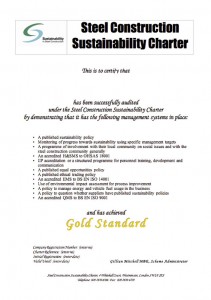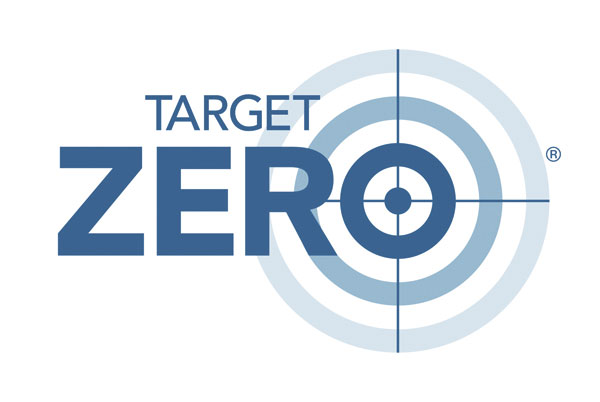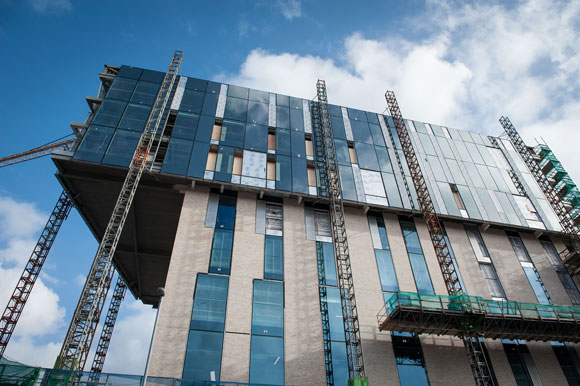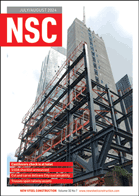Projects and Features
The route to sustainable construction
The BCSA was the first representative organisation in the UK to launch a sustainability charter, the objective of which is to develop steel as a sustainable form of construction in terms of economic viability, social progress and environmental responsibility.
Launched in 2005, the British Constructional Steelwork Association’s (BCSA) Steel Construction Sustainability Charter (SCSC) currently has 40 members which is proof that sustainability is high on the agenda for the majority of construction companies, and they need to focus on responsible practice across all activities including the supply chain.
It is this responsible approach, that is today a common thread throughout the constructional steelwork supply chain, and one that also sees steelwork as an increasingly sustainable material of choice for clients and designers.
Signing up to the SCSC is one initiative that offers steelwork contractors and component, material and product suppliers a way of demonstrating that they are addressing sustainability at a time when clients are wanting to employ firms that can show they are monitoring progress and continually making improvements.
The SCSC was set up to promote the development of steel as a sustainable form of construction in terms of economic viability, social progress and environmental responsibility. Steelwork contractors demonstrate their commitment to operating in a sustainable and responsible way by signing up to the charter.
A steelwork contractor that is a charter member can offer a specifier or contractor the following:
- Commitment to sustainable ideals
- Capability to deliver on those ideals
- Information on sustainable steel construction
- Responsible sourcing for steel materials
- Information on operational carbon footprint
Charter Members that agree to be bound by the charter have to make a formal declaration of their commitment to a set of sustainable principles, and to be assessed and monitored against a range of environmental, social and economic criteria. Charter Members formally declare that they will adhere to the following aims and objectives:
- Operate their businesses to the highest ethical standards in efficient and financially sustainable ways, in order to undertake contracts that satisfy clients and add value for stakeholders
- Work to assess and minimise the effect of manufacturing and construction activities on the eco-efficiency of steel construction through its life cycle
- Work towards increasing the efficiency of use of resources and energy in steel construction by promoting the recovery, reuse and recycling of steel
- Foster the health and safety of employees and others in the steel construction industry, and operate generally in a healthy, safe and environmentally sound manner
- Demonstrate social responsibility by promoting values and initiatives that show respect for people and communities associated with steel construction and with other organisations in the supply chain.
The SCSC has been used to help improve understanding of sustainability among steel construction companies, as well as providing them with a tool to help them manage their businesses in more sustainable ways. Charter Members also agree to provide data which is used to calculate sustainability Key Performance Indicators (KPIs) and benchmark their performance.
A second objective of the Charter takes the BCSA’s sustainability initiative beyond individual companies and requires the sector to engage directly with building specifiers and bridge procurement agencies. The aim is to develop suitable “green” specifications for steel construction that draw on the established capabilities of BCSA Charter Members in the supply chain.
Charter Member companies are assessed against the criteria listed below; to obtain Charter Membership companies must achieve at least six of the requirements; for Silver a minimum of nine requirements must be met and for Gold all requirements must be met:
- A published sustainability policy (mandatory)
- Monitoring of progress towards sustainability using specific management targets
- A programme of involvement with their local community on social issues and with the steel construction community generally
- An accredited H&SMS to OHSAS 18001 or H&S management as an integral part of a QMS accredited to BS EN ISO 9001
- IIP accreditation or a structured programme for personnel training, development and communication
- A published equal opportunities policy
- A published ethical trading policy
- An accredited EMS to BS EN ISO 14001
- Use of environmental impact assessment for process improvement
- A policy to manage energy and vehicle fuel usage in the business
- A policy to question whether suppliers have published sustainability policies
- An accredited QMS to BS EN ISO 9001
Of the 40 members of the scheme, 17 have Gold and 14 have silver status.
An up to date list of all Charter Member companies can be found at: http://www.steelconstruction.org/directories/sustainability.html















